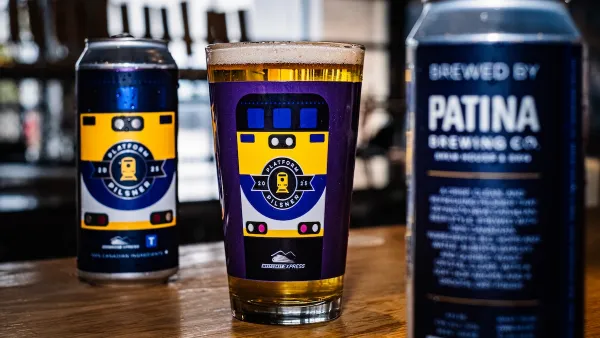This article from Vancouver Magazine looks at a recent study naming the livable and oft-envied city home to some of the least happy Canadians and asks why a great city has unhappy people.
"A groundbreaking study found that, despite our glorious mountains and ocean, our mild weather, our good health, our Olympic future, and all the livability accolades, Vancouverites are just not as happy as people in St. John, or St. John's, or Winnipeg. The news was enough to wipe the smug grin from any world-class mug."
"So what does it take to make a city happy? Why aren't mountain views and a strong economy enough? In a town that looks to real-estate schemes for fulfillment, is it possible to build our way to happiness? To answer these questions, I hooked up with the Subjective Well-being Club, a collective of happiness-obsessed economists, psychologists, and educators at the University of British Columbia. Helliwell is the club's éminence grise."
"Self-reported happiness reflects all the varied ingredients of a good life. That's why the study on Canadian cities was so annoying. None of Canada's biggest, richest cities were among the happiest. Toronto and Edmonton were near the back of the pack. Vancouver trailed behind them. And for all its boom and bluster, Calgary brought up the rear. The happy charts were topped by Canada's small Nowheresville cities: St. John, New Brunswick, whooped us all. How is it that the places that attract us, the cities that cost us so much to call home, are emotional tar pits?"
Thanks to Brent Toderian
FULL STORY: Sad City

Maui's Vacation Rental Debate Turns Ugly
Verbal attacks, misinformation campaigns and fistfights plague a high-stakes debate to convert thousands of vacation rentals into long-term housing.

Planetizen Federal Action Tracker
A weekly monitor of how Trump’s orders and actions are impacting planners and planning in America.

Chicago’s Ghost Rails
Just beneath the surface of the modern city lie the remnants of its expansive early 20th-century streetcar system.

Bend, Oregon Zoning Reforms Prioritize Small-Scale Housing
The city altered its zoning code to allow multi-family housing and eliminated parking mandates citywide.

Amtrak Cutting Jobs, Funding to High-Speed Rail
The agency plans to cut 10 percent of its workforce and has confirmed it will not fund new high-speed rail projects.

LA Denies Basic Services to Unhoused Residents
The city has repeatedly failed to respond to requests for trash pickup at encampment sites, and eliminated a program that provided mobile showers and toilets.
Urban Design for Planners 1: Software Tools
This six-course series explores essential urban design concepts using open source software and equips planners with the tools they need to participate fully in the urban design process.
Planning for Universal Design
Learn the tools for implementing Universal Design in planning regulations.
planning NEXT
Appalachian Highlands Housing Partners
Mpact (founded as Rail~Volution)
City of Camden Redevelopment Agency
City of Astoria
City of Portland
City of Laramie




























